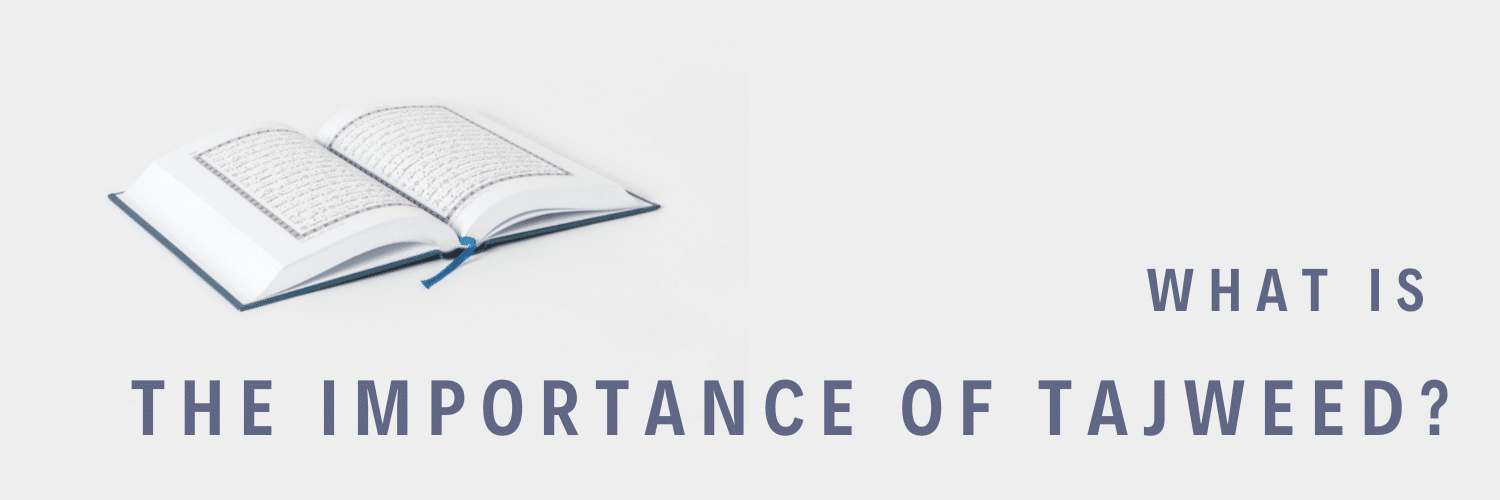The holy Quran is more than a book that sets out the story of creation and the laws that Muslims are to follow. It also guides and preserves the Arabic language, which was used by Allah to transmit His revelations to the Prophet Muhammad.
Muslims who study the Quran can develop not only a deeper understanding of the Arabic language but of the nuances and meaning of the text itself.
The Quran is meant to be recited out loud. To do this properly, you must have an understanding of Tajweed, which refers to the correct pronunciation of Arabic words. (The term Tajweed means “to make better.”) When you learn how to read the Quran with Tajweed pronunciation, you will be able to articulate the text accurately.
Tajweed is more than simply mastering accents or dialect. Basic Tajweed rules include focusing on clarity of expression, properly timing the syllables, and understanding how an individual letter can change the way a word is spoken. Tajweed will also help you develop a deeper faith and closer connection with God by better understanding and respecting His words.
How to Properly Recite the Quran
What are the Tajweed rules?
First, the Quran is to be recited with full attention and belief, along with an understanding that the words are God’s, not man’s. The goal is to understand that each message you recite is directed specifically at you.
The list of Tajweed rules explains how to read and recite the Quran. These rules include:
- Perform wudu, or ceremonial cleansing of the body, before reading the Quran, and make sure your clothes and the surrounding area are clean.
- Sit facing the Qibla, the direction of the sacred building in Mecca. Maintain a respectful position, level with or lower than the Quran.
- While reading or reciting the Quran, do not talk to anyone. If an important issue arises, step away from the Quran, deal with the issue and resume study afterward.
- Fully and clearly pronounce each letter and word.
- After reading the Quran, attest to the truth of what you have read and to Allah and the Prophet Muhammed. Then you may pray.
Reading the Quran With Tajweed
Tajweed is so important because correct pronunciation of the language of the Quran will reach the hearts of those who listen to it. That is why you must read with care, to absorb the meaning of the verses and to understand how to apply the laws and directives to your life. Tajweed is critical because without it, readers may change the meaning of the text without realizing they’ve done so.
If you want to learn the Tajweed rules, you must understand that Tajweed includes two parts: the scientific and the practical. The scientific is part of a collective duty that requires at least some Muslims to know specific Tajweed rules so they can share them with others. The practical includes the phonetic rules of reading and reciting the Quran so it is communicated properly and interpreted accurately.
Common Mistakes When Reading the Quran
Because the Quran is the word of Allah, it is essential that readers learn Arabic vowels and letters. If you use a transliteration, it may not take into account some letters that look similar but are pronounced very differently. Keep these other frequent mistakes in mind as well:
- Starting and stopping: The proper manner of stopping is using a sukoon, or the absence of a vowel, on the last letter of a word. Do not stop with a harakah, a vowel on the last letter of a word. Stopping in the wrong spot can also contradict the meaning intended by Allah, so be sure to stop in a place that perfectly represents the meaning of a verse.
- Incorrectly timing the vowels: It is common to make vowels longer or shorter than they should be.
- Pronouncing letters inaccurately: Some letters appear similar to letters in other languages but have different articulation points, so they should sound distinct.
An understanding of Tajweed can help assure that you are reciting the Quran appropriately. Studying the Quran demonstrates and deepens your faith commitment.
Learn More About Tajweed and the Quran With Classes at IQRA
Ready to learn more about the Tajweed rules for beginners? Do you want a more profound understanding of the Quran and Islam itself? IQRA offers classes to help you learn Arabic as well as more about Islam.
IQRA’s interactive video sessions provide immediate feedback from an experienced tutor who will help motivate and support you as you progress. Our teaching materials were created by Quran scholars and expert Arabic speakers, and our sessions are available 24/7 to fit any schedule. To learn more about classes or to sign up today, schedule your free evaluation here.




